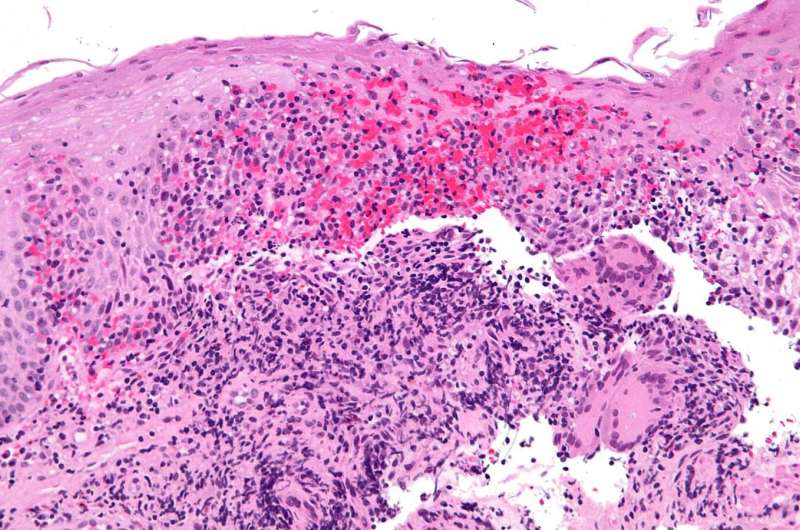promising new investigational treatment shows potential for Crohn's disease remission

A new investigational therapy targeting TL1A shows significant potential to induce remission in Crohn's disease, offering hope for better treatment options. Recent studies highlight rapid response and possible effects on fibrosis crucial in disease management.
Cedars-Sinai researchers have developed an innovative experimental therapy that has demonstrated significant promise in inducing remission for patients suffering from moderate to severe Crohn's disease. Published in The Lancet Gastroenterology & Hepatology, the phase II-A study revealed that nearly half of the participants achieved clinical remission after receiving the monoclonal antibody treatment targeting a protein called TL1A.
This novel therapy, named tulisokibart, was created at Cedars-Sinai and has also shown encouraging results in a separate Phase II trial targeting ulcerative colitis, another form of inflammatory bowel disease (IBD). Crohn's disease and ulcerative colitis collectively affect about 1% of the U.S. population, with no current cure and variable responses to existing treatments.
The study involved 55 adult Crohn's patients who received varying doses of tulisokibart over 12 weeks. The findings indicated that approximately 50% of patients experienced remission, a notable improvement compared to the 16% remission rate typical of historical controls. Furthermore, the therapy appears to be effective in combating fibrosis — the scarring that causes narrowing of the gut and often necessitates surgery — which is a major complication in Crohn’s disease.
Dr. Dermot McGovern, lead researcher and head of Translational Research at Cedars-Sinai, highlighted the rapid response seen with tulisokibart, noting inflammatory markers decreased within a week of starting treatment. He emphasized the significance of this approach, not only for deactivating inflammation quickly but also for potentially addressing fibrosis, a common and challenging problem in chronic conditions.
Additionally, researchers developed a diagnostic tool to identify patients most likely to benefit from the treatment, a step toward personalized medicine in IBD care. The therapy's mechanism was uncovered through extensive genetic and immunological research.
Researchers plan to advance this work through larger, double-blind Phase III trials, aiming to validate the safety and efficacy of tulisokibart as a drug capable of achieving and maintaining remission. Experts believe this treatment could revolutionize management options for Crohn's and other inflammatory bowel diseases, bringing hope for longer-lasting, more effective solutions.
Source: https://medicalxpress.com/news/2025-06-crohn-disease-treatment-potential-remission.html
Stay Updated with Mia's Feed
Get the latest health & wellness insights delivered straight to your inbox.
Related Articles
Complete Brain-wide Activity Map Unveils Cellular Resolution of Decision-Making in Mice
A novel, comprehensive brain-wide map of neural activity at the single-cell level offers new insights into how mice make decisions, highlighting widespread neural coordination and predictive processes. This research advances understanding of brain function and supports large-scale collaborative neuroscience efforts.
Should You Spit or Swallow Phlegm? Understanding the Best Approach
Discover whether it's better to spit out or swallow phlegm during respiratory illnesses. Learn how each method affects your health and immune response for optimal respiratory care.
Parents Beware: Misleading Claims from Companies Banking Baby Teeth for Stem Cell Treatments
Parents are investing in tooth stem cell banking for their children's future, but companies' claims about treatment potential are unproven and misleading, raising concerns among experts about overhyped promises and lack of evidence.
Link Between Toxic Metals and Growth Challenges in Guatemalan Infants
New research links high levels of toxic metals in breast milk to growth impairments in infants in Guatemala, highlighting environmental pollution's impact on child health.



